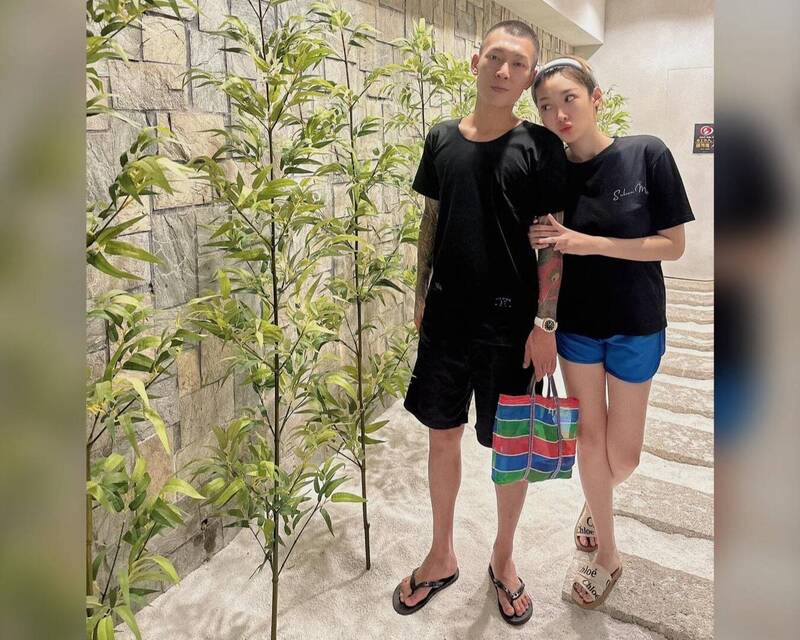《TAIPEI TIMES》 REPORTER’S NOTEBOOK: Abe’s death a great loss for Taiwan

People in Nara, Japan, yesterday pray next to flowers laid at the site where former Japanese prime minister Shinzo Abe was shot while campaigning for a parliamentary election. Photo: Reuters
SETTING THE AGENDA: Criticized at home for wanting to change Japan’s pacifist constitution, Abe’s frank talk of Indo-Pacific security became a focus in the region
By Lin Tsuei-yi / Staff reporter in Tokyo
The assassination of former Japanese prime minister Shinzo Abe — in whom Taipei found a trusted ally — is undoubtedly a great loss for the nation.
Throughout his political career, Abe had done much to wake the international community to the threat of a Chinese invasion of Taiwan, which he worked ceaselessly to prevent.
“A Taiwan emergency is a Japanese emergency, and therefore an emergency for the Japan-US alliance,” Abe told an online forum held by the Taipei-based Institute for National Policy Research in December last year.
In an opinion piece published by Project Syndicate in April, Abe called on the US to end its long-standing policy of “strategic ambiguity” over Taiwan, saying it fosters “instability in the Indo-Pacific region, by encouraging China to underestimate US resolve, while making the government in Taipei unnecessarily anxious.”
Abe had long recognized that China’s hegemonic rise posed a threat to security in the Asia-Pacific region.
As early as 2007, while serving his first term as prime minister, Abe touted the idea that the Indian and Pacific oceans form a single geostrategic unit. This concept would give rise to the Free and Open Indo-Pacific strategy, which Abe unveiled as the guiding principle of his foreign policy in 2016.
That framework has since been adopted in various capacities by the governments of Australia, India, the US and others in the region.
Abe had also perceived weakness in Japan’s national defense. Japan’s constitution limits exercising the right of collective self-defense to a narrow set of circumstances that could impede the ability of the US-Japan alliance to respond to crises in the region.
Abe sought to authorize the use of the Japan Self-Defense Forces in foreign conflicts by launching initiatives to reinterpret Article 9 of the constitution and pass Japan’s Legislation for Peace and Security.
The efforts were met with a storm of criticism from pacifists in Japan, who accused Abe of seeking to revive militarism and military conscription. The controversy culminated in calls for his resignation and protesters reportedly placed figurines of the prime minister on roads to be crushed by vehicles.
Shifts in power in the region would prove him right. China’s constant parade of warships and military aircraft have stoked regional tensions and laid bare the depth of Beijing’s ambitions to Taiwan and Japan.
In retrospect, Abe’s persistence — which gave Japan the much-needed legal authority to respond to military conflict in the Taiwan Strait — showed audacity and vision rarely seen in Japanese politicians today.
Abe stepped down as prime minister in 2020, citing a recurrence of ulcerative colitis, a condition he had said contributed to him stepping down in 2007 after just one year in office during his first term.
Just one year after retirement, he continued his high-level political engagement, taking over the leadership of the Liberal Democratic Party’s biggest faction, Seiwa Seisaku Kenkyukai.
Abe also gave numerous speeches at public forums and campaign events that addressed Japan’s security environment, the need to bolster national defense and amending the constitution.
Abe’s remarks over the past two years — especially the widely reported Taiwan emergency speech — likely played a key role in reshaping public opinion in Japan. More than 90 percent of Japanese now believe their country should plan for a “Taiwan emergency,” a Nikkei poll released last month showed.
To Taiwan, Abe had been a tested friend, a powerful intercessor and perhaps most importantly, the statesman who all but brought the country into the fold of the US-Japan mutual cooperation and security framework.
Translated by Jonathan Chin
新聞來源:TAIPEI TIMES

Calligraphy by former Japanese prime minister Shinzo Abe with the text "Taiwan, jia you [an expression of encouragement]" is posted to Abe’s offical Facebook page on Feb. 8 2018. Photo: Screen grab from the Shinzo Abe’s Facebook page










